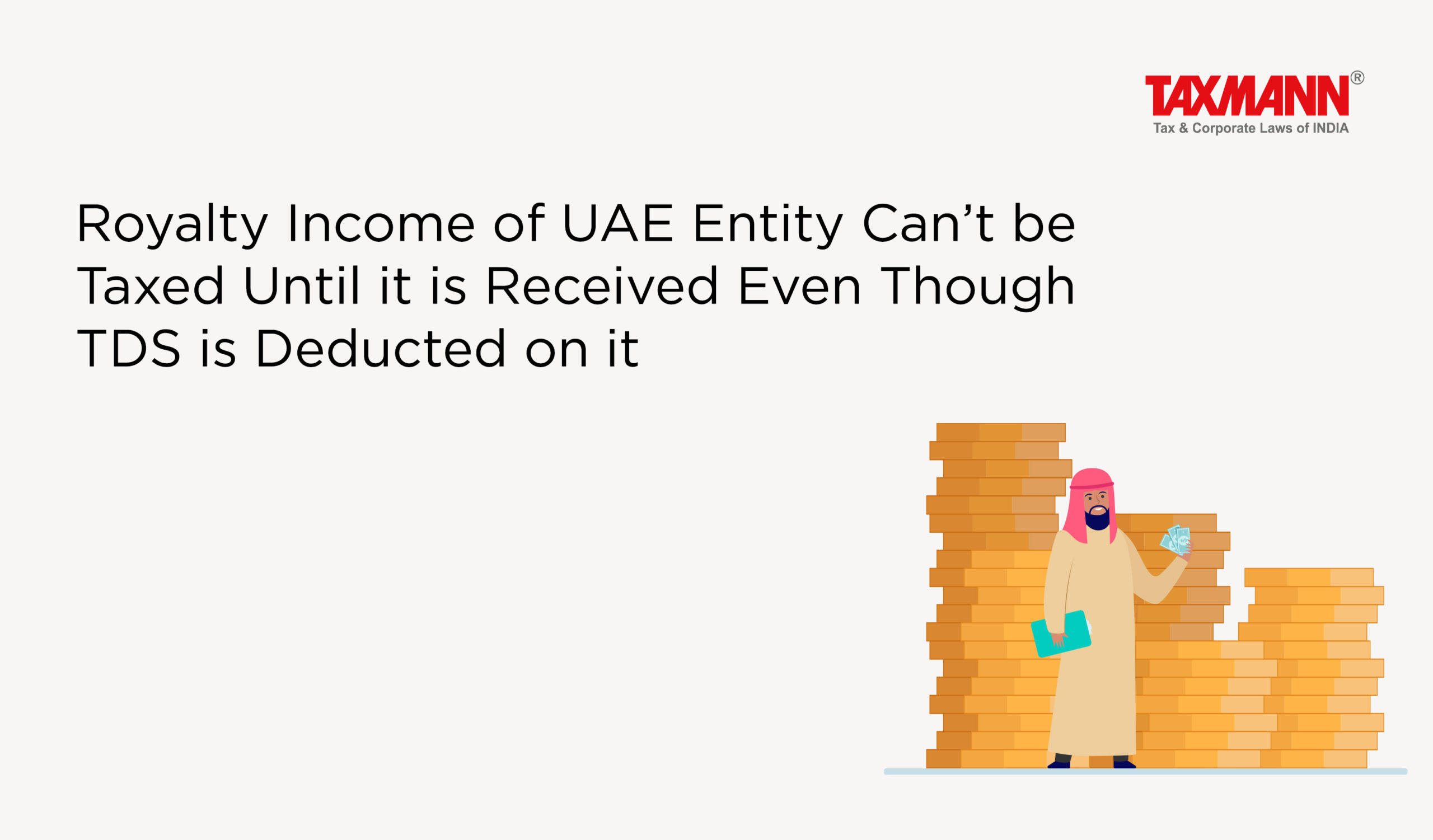Royalty Income of UAE Entity Can’t be Taxed Until it is Received Even Though TDS is Deducted on it
- Blog|News|International Tax|
- 2 Min Read
- By Taxmann
- |
- Last Updated on 2 August, 2023

Case Details: Aircon Beibars (FZE) v. DCIT - [2023] 153 taxmann.com 41 (Delhi-Trib.)
Judiciary and Counsel Details
-
- G.S. Pannu, President & Saktijit Dey, Vice-president
- K. Sampath, V. Rajkumar, Advs. & Vishal Sehgal, FCA for the Appellant.
- Vizay B. Vasanta, CIT(DR) for the Respondent.
Facts of the Case
Assessee is a non-resident corporate entity incorporated under the laws of the United Arab Emirates (UAE), engaged in leasing helicopters to clients worldwide.
During the assessment proceedings, the Assessing Officer (AO) observed that the assessee had leased one helicopter to an Indian Entity through a dry lease agreement. The assessee transferred the right to use/operate the helicopter in India per the agreement. The Indian entity deducted tax on royalty payable to the assessee, which was reflected in Form 26AS of the assessee. The AO treated such income as royalty and added it to the assessee’s income.
Considering that no payment was actually received from the Indian entity, the aggrieved assessee filed an appeal to the CIT(A). CIT(A) upheld the additions made by AO.
The matter reached the Delhi Tribunal.
ITAT Held
The Tribunal held that the assessee had raised only four invoices during the relevant year. It is an undisputed fact that due to a serious dispute between the parties regarding the lease terms and other issues, the assessee did not receive any payment towards leasing the helicopter from the lessee.
Further, it was noted that Form 26AS reflected the income paid/credited to the assessee since the lessee deducted tax on the said amount. However, in reality, the assessee did not receive even a single rupee towards lease income.
In addition, a reference was made to the condition in paragraph 3 of Article 12 of India – UAE DTAA. Article 12 states that the royalty income has to be received for the use or right to use of any copyright, trademark, patent etc. It was held that the expression ‘received’ used in Article 12 would mean ‘actual receipt’ of royalty and not any receipt on accrual or deemed basis. Therefore, the condition under Article 12 of the India-UAE DTAA is not fulfilled. Accordingly, the AO was directed to delete all the additions.
Disclaimer: The content/information published on the website is only for general information of the user and shall not be construed as legal advice. While the Taxmann has exercised reasonable efforts to ensure the veracity of information/content published, Taxmann shall be under no liability in any manner whatsoever for incorrect information, if any.

Taxmann Publications has a dedicated in-house Research & Editorial Team. This team consists of a team of Chartered Accountants, Company Secretaries, and Lawyers. This team works under the guidance and supervision of editor-in-chief Mr Rakesh Bhargava.
The Research and Editorial Team is responsible for developing reliable and accurate content for the readers. The team follows the six-sigma approach to achieve the benchmark of zero error in its publications and research platforms. The team ensures that the following publication guidelines are thoroughly followed while developing the content:
- The statutory material is obtained only from the authorized and reliable sources
- All the latest developments in the judicial and legislative fields are covered
- Prepare the analytical write-ups on current, controversial, and important issues to help the readers to understand the concept and its implications
- Every content published by Taxmann is complete, accurate and lucid
- All evidence-based statements are supported with proper reference to Section, Circular No., Notification No. or citations
- The golden rules of grammar, style and consistency are thoroughly followed
- Font and size that’s easy to read and remain consistent across all imprint and digital publications are applied



 CA | CS | CMA
CA | CS | CMA
